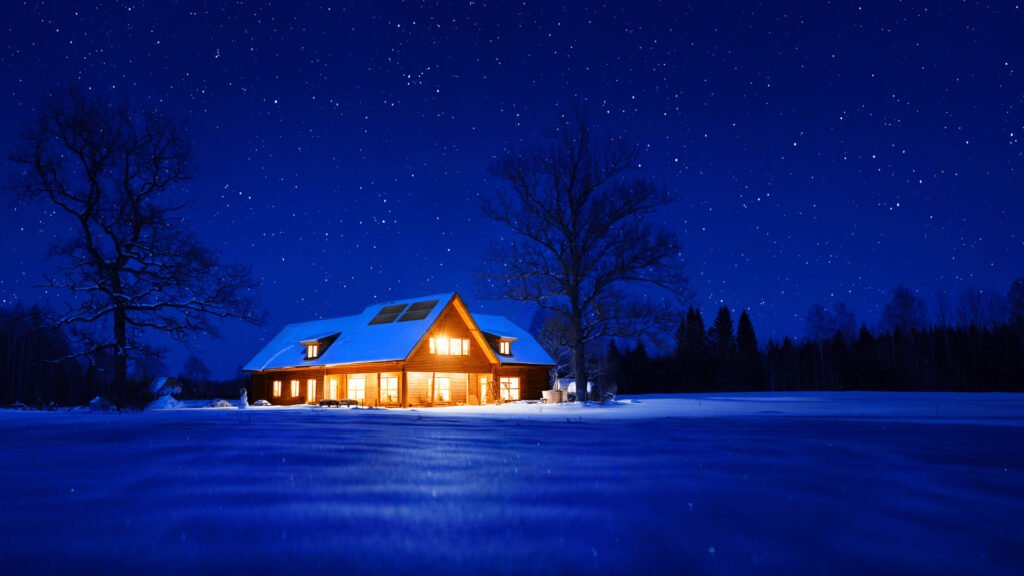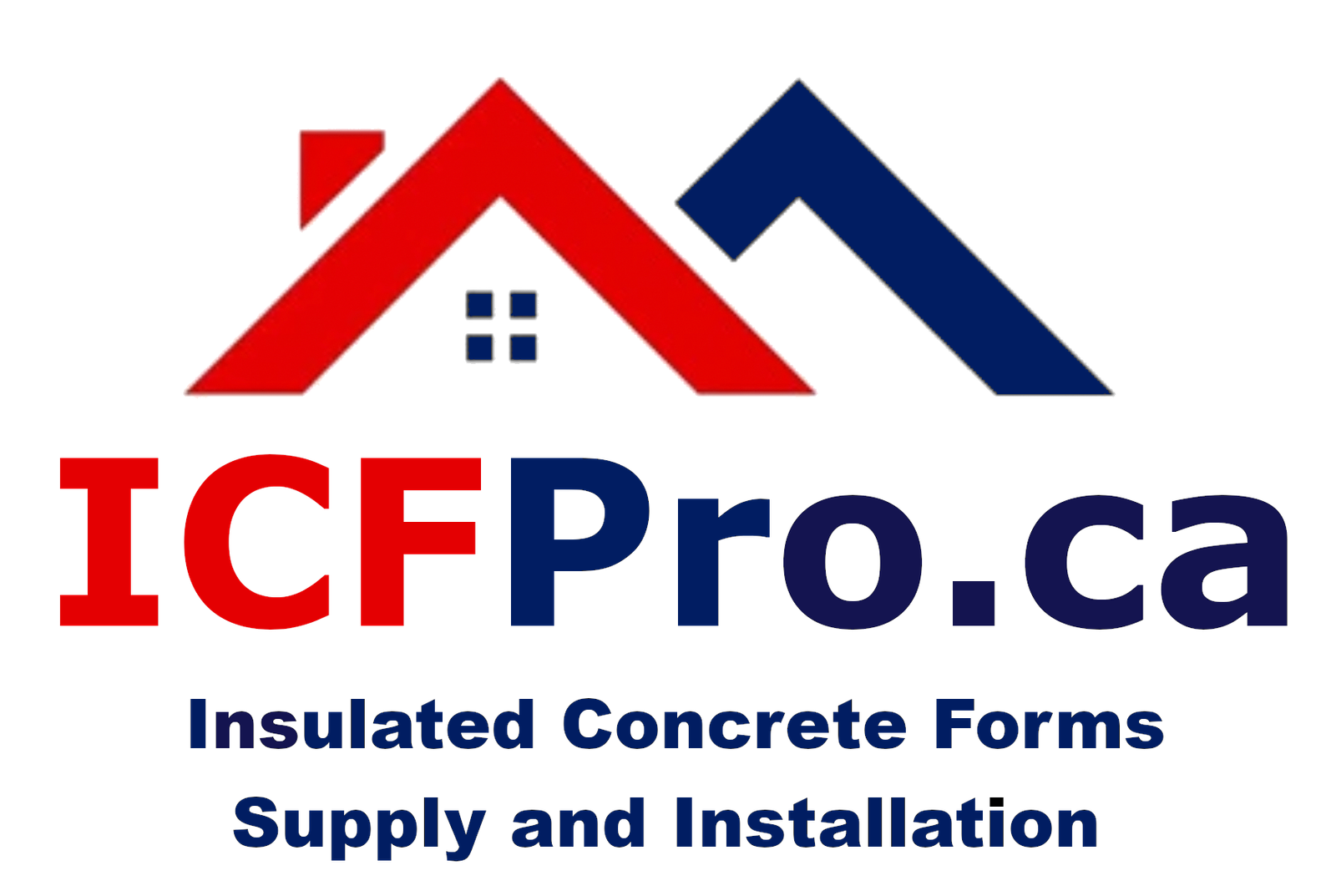ICFPro.ca is a division of ICFhome.ca - Phone 1 866 868-6606 - Direct Line 1 705 533-1633 - Email: info@icfhome.ca
Sustainability with ICF: Building a Greener Future, One Home at a Time

Why Sustainability Matters in Construction
As the world shifts toward a more environmentally conscious future, sustainability in construction has gone from being a “nice-to-have” to an absolute necessity. Homeowners, builders, and businesses alike are seeking ways to reduce their environmental impact without compromising on comfort or quality. That’s where Insulated Concrete Forms (ICF) come in.
At ICFPro.ca, we’ve seen how sustainable ICF construction is transforming the industry. By reducing waste, boosting energy efficiency, and creating long-lasting, eco-friendly homes, ICF is paving the way for a greener tomorrow. Let’s take a deep dive into how eco-friendly ICF homes deliver both environmental and economic benefits—and why they’re the smart choice for anyone looking to build sustainably.
What Makes ICF a Sustainable Building Material?
Sustainability isn’t just about using fewer resources today; it’s about building in a way that ensures future generations can thrive. ICF delivers on this promise in several key ways:
1. Energy Efficiency for a Lifetime
ICF homes are inherently energy-efficient, which means they use less energy for heating and cooling year after year. This not only saves homeowners money but also reduces the overall demand for energy, much of which comes from non-renewable sources.
- High R-Value: ICF walls provide continuous insulation, minimizing heat loss in winter and heat gain in summer.
- Reduced Energy Consumption: By cutting down on heating and cooling needs, ICF homes significantly lower their carbon footprint.
Over the lifetime of an ICF home, these energy savings add up to a substantial environmental impact.
2. Minimal Construction Waste
One of the biggest challenges in traditional construction is the amount of waste generated on-site. From scrap wood to offcuts of drywall, the debris often ends up in landfills. ICF changes the game.
- Precise Material Use: ICF blocks are cut to fit and used efficiently, leaving very little waste behind.
- Recyclable Materials: Many ICF systems are made from recyclable components, further reducing their environmental footprint.
ICF and Green Building Standards
If you’re building in Ontario, you’re likely familiar with the push for greener building practices. Whether it’s meeting SB-12 energy efficiency standards or aiming for certifications like LEED (Leadership in Energy and Environmental Design), ICF homes are an excellent choice.
1. SB-12 Compliance Made Easy
Ontario’s SB-12 supplement to the Building Code sets strict guidelines for energy efficiency in new homes. ICF construction not only meets these standards but often exceeds them, thanks to its superior thermal performance.
2. LEED Certification Potential
ICF contributes to several LEED points, including:
- Energy and Atmosphere: Reducing energy use earns points in this category.
- Materials and Resources: Using recyclable, durable materials helps meet sustainability goals.
- Indoor Environmental Quality: Airtight, well-insulated homes improve air quality and reduce energy waste.
Reducing Your Carbon Footprint with ICF Homes
The carbon footprint of a home includes everything from the materials used to build it to the energy required to operate it. Eco-friendly ICF homes stand out because they’re designed to minimize environmental impact at every stage:
1. Lower Operational Emissions
Heating and cooling account for a large portion of a home’s carbon emissions. Because ICF walls are so well-insulated, homeowners use less energy, resulting in significantly lower emissions over time.
2. Long-Term Durability
ICF homes are built to last for generations, which means fewer resources are needed for repairs, maintenance, or rebuilding. Contrast this with traditional homes, which may require frequent updates to address rot, pests, or structural issues.
3. Supporting Renewable Energy Integration
ICF homes pair beautifully with renewable energy systems like solar panels or geothermal heating. By reducing overall energy demand, these systems can perform even more efficiently.
Sustainable Construction Practices with ICF
Sustainability isn’t just about the finished home—it’s also about how that home is built. ICF construction offers several advantages during the building process:
1. Faster Construction Times
Because ICF blocks are lightweight and easy to stack, the building process is faster than traditional methods. This reduces the energy and labor needed on-site.
2. Fewer Transport Emissions
ICF blocks take up less space during transport, which reduces the carbon emissions associated with shipping materials to the job site.
3. Reduced On-Site Impact
Traditional construction often requires heavy equipment and generates significant noise and debris. ICF construction is quieter and cleaner, minimizing its impact on the surrounding environment.
ICF Homes: Resilience Meets Sustainability
When you choose to build with ICF, you’re not just getting an eco-friendly home—you’re getting one that’s built to last. The durability of ICF homes enhances their sustainability in several ways:
1. Resistance to Natural Disasters
ICF homes can withstand extreme weather conditions like hurricanes, floods, and wildfires. This resilience reduces the need for repairs or rebuilding, saving resources and energy over time.
2. No Rot, Mold, or Pests
Traditional wood-frame homes are vulnerable to issues like rot, mold, and termites, which require ongoing maintenance. ICF walls eliminate these problems, reducing the materials and chemicals needed for repairs.
3. Fire Resistance
ICF walls are fire-resistant, which not only protects the home but also reduces the likelihood of environmental damage caused by house fires.
Eco-Friendly Living: What It Means for Homeowners
Building sustainably isn’t just good for the planet—it’s good for you and your family. Here are some of the day-to-day benefits you’ll notice when living in an ICF home:
1. Lower Energy Bills
Thanks to ICF’s energy efficiency, you’ll spend far less on heating and cooling. Over time, those savings can add up to thousands of dollars.
2. Healthier Indoor Air
ICF walls create an airtight envelope that blocks outdoor pollutants, allergens, and moisture from entering your home. This means cleaner air for your family to breathe.
3. A Quieter, More Peaceful Home
The same insulation that makes ICF homes energy-efficient also makes them quieter. You’ll enjoy a more serene indoor environment, free from outside noise.
Why Sustainable ICF Construction Is the Future
As building codes become stricter and homeowners demand more eco-friendly options, the construction industry is moving toward sustainability—and ICF is leading the way.
1. Aligning with Global Sustainability Goals
Governments and organizations around the world are pushing for net-zero emissions by 2050. ICF construction helps achieve this by reducing the energy demand of homes and buildings.
2. Meeting the Needs of Eco-Conscious Buyers
Today’s buyers are more informed than ever about sustainability. Homes built with ICF stand out in the market, offering long-term value and lower operating costs.
3. Setting the Standard for Modern Building
ICF isn’t just a sustainable choice—it’s a smart one. It combines energy efficiency, durability, and low maintenance, making it the gold standard for modern construction.
Why Choose ICFPro.ca for Your Sustainable Build?
At ICFPro.ca, we’ve been building eco-friendly ICF homes since 1995. We’ve seen the difference these homes make—for the environment, for families, and for future generations. When you work with us, you’re not just getting a builder—you’re getting a partner who’s committed to sustainability at every step.
Let’s Build a Greener Future Together
Ready to make the switch to sustainable construction? Let’s start the conversation.
📍 Request a Free Quote Today → [Get Started]
📍 Learn More About Sustainable ICF Homes → [Explore Our Services]
Build Smarter. Build Greener. Build with ICFPro.ca.
